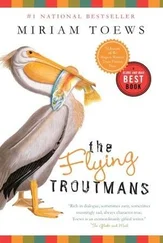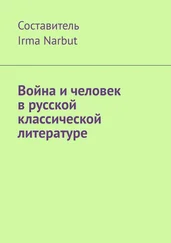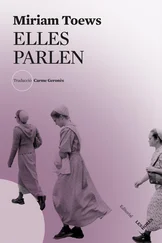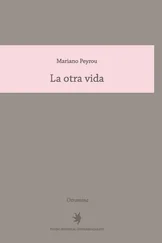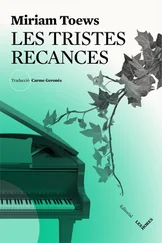That night Ximena woke up every hour on the hour howling at the world for all its timid resignation and coy duplicity and also, I think, at me directly for having no hair that she could twist around her little fist and pull until it came out by its roots. She could still vomit on me, though, so she did that a couple of times and then to top it off she head-butted me in the nose which actually brought tears to my eyes and made me plop her on the bed next to Aggie more roughly than I should have. Aggie woke up and said no, get her away from me and I said no, you have to walk around with her for a while now. I have to sleep.
I don’t know what happened after that because Aggie took over and I lost consciousness. When I woke up they were both lying on the pullout couch, their eyes closed, their mouths wide open like sleep had caught them by surprise. If they’d been my captors this would be the moment I’d choose to run. A vile odour emanated from Ximena’s ass. I peered closely at her chest and saw it rise and fall and rise again and thought: you live.
I went into the tiny bathroom and looked at myself in the mirror. Short and jagged. Good. I stroked the naked nape of my neck. I lifted up one lock of hair near my ear and measured it. One, maybe one and a half inches. Good. I looked at myself some more. Did I look like Katie? I don’t know. I wanted to show my mother my new haircut. She would have smiled and shaken her head and kissed me. She would have been afraid for me. She would have covered her eyes and then peeked through them. She would have admired my daring. She would have rejoiced quietly, silently, and stored this moment in some dark and hidden pocket of her soul. I stared at myself a bit longer and tried so hard to see Katie. I tried to see my mother and I even tried to see my father.
The stuff that happened next was almost calm and manageable so I won’t go into much detail. Aggie started school in September. She has a navy blue and white uniform that she hates and a clarinet that she practises on the balcony and one or two friends that come around every once in a while. She is drawing murals on our walls, on large sheets of wrapping paper that Hubertus buys in bulk. She has a so-called boyfriend whose name is Israel and who is also, coincidentally, a hemophiliac, so they must be careful when they punch each other and play around or he’ll bleed to death. That’s her type. The kind of kid who understands a soft and wounded interior. Israel told her that even sharp words can injure him but that was just a joke. His latest plan is to become a chainsaw artist. I’ve seen Israel run up the side of a building and then do a backwards somersault and land on his feet. He says that’s his calling card.
I’m working. Cleaning rooms, making meals. Ximena, my antagonist, sits in her baby chair and watches me. Aggie and I both have cellphones. I tried to phone Jorge again and the operator told me that number was no longer in service. Otherwise I have Aggie’s number and Hubertus’s and Natalie’s numbers and also Noehmi’s number. We go for beers sometimes when she’s not too busy with university classes and anarchy. Sometimes I walk over to the park to spy on that bookseller. I think and wonder a lot about Jorge. I wonder if he ever thinks about me or if he misses me at all. I wish I had been a better wife. And sometimes I pretend that I see Wilson. In bed, before I get up to work, I lie in the dark and imagine conversations with him and I remember the way he moved his hand across my body.
Ximena has learned how to bite and sit and point and lure people with her good looks. The tourists here at the bed and breakfast love her at first and then she starts to fight with them, stiffening her body into a blunt weapon, grabbing their noses and cheeks and lips and ears and twisting, screaming like an injured bird, and they give her back to me. Natalie says that when Ximena learns to walk Mexico City will know destruction similar to the scale of the 1985 earthquake.
Aggie’s murals are almost all of our family. But they’re conceptual, she says. Katie is a ghost that hovers over every scene and sometimes takes the shape of a crow or a breeze and Aggie is a rabbit. Our little brothers appear, when they appear, as raindrops. Our mother is a barn and I’m a tractor and our father is a big bell or the wreckage of the broken crop-duster. Aggie paints murals with these figures in different positions and doing different things. Sometimes she has us saying things, even the barn, but not usually. Aggie doesn’t talk much about her murals and I’ve learned not to ask too many questions. One thing I like to ask and she doesn’t seem to mind answering is: where’s Katie in this one? I don’t know if the purpose of each of her murals is to create a picture in which Katie can appear, or if she feels more free talking about the thing that represents Katie because she doesn’t remember much about her so she isn’t hampered by reality. One day I asked her where God was in her murals and she said TBA. I asked her what that meant and she said she didn’t know but I’m pretty sure she does.
The other day I went out to buy some avocados and I took a different route to the store. I noticed a building with a sign on it that said Citlaltépetl Refuge House . There was a white poster in the window at the front of the building and there were black words on it that said, When I came to Mexico City, I was dead. And here I started to live again. There was a small open archway at the front of the building that led into a quiet courtyard. I walked inside and stood next to a wall with photographs on it. A woman came out of a little office and asked me if she could help me with anything and I told her I had seen the white poster in the window and it had made me curious about the building.
What happens here? I asked her.
We are a refuge for exiled writers, she said. The words on the poster are a quote from the Kosovar poet Xhevdet Bajraj.
Oh, I said.
Where are you from? she asked me.
From here, I said. I’m Mexican. I live a few blocks from here.
We have a few apartments for writers who are forced to leave their own countries, she said. And a small bookstore and library and a little café, as you can see. We have readings here sometimes and different types of events. Music, drama. We’ve tried to create a comforting and stimulating environment. She pointed at the tables set up in the courtyard.
Why are they forced to leave their own countries? I said.
For various reasons, said the woman. She explained some of those reasons to me and I nodded.
How do they leave? I said.
In different ways, she said. But always with unfinished business and a broken heart. Freedom has its price.
Where is he now? I said.
Who? she said.
The poet.
He lives nearby, she said. Here in La Condesa.
Well, I said. I didn’t know what else to say. Then I thought of something. I have to go buy avocados, I said.
The woman said she understood. She loved them too. She thanked me for visiting and told me to keep one eye open for future events.
Last night Aggie agreed to guard Ximena, as she puts it, and I went out for a beer with Noehmi at a place called Tinto’s which is sort of a halfway mark between her neighbourhood of Tacubaya and my neighbourhood of La Condesa. We sat across from each other in a red booth and she told me about the play she’s working on.
It’s a one-man show, she said. It takes place in total darkness until the very end. The audience hears voices and sounds but they don’t see anything. She explained to me that at first the audience will hear the voice of a man, obviously suffering in some way. Then we’ll hear the voice of a woman talking to a different man, then other voices, of kids, older people, a teacher. Gradually we’ll realize that this man, the first man, is stuck in an air duct in the attic of a pawnshop that he’s trying to rob so that he can buy drugs. It’s his friend’s pawnshop. The woman is his girlfriend and she’s in the shop asking his friend if he’s seen her boyfriend. He’s been missing for days. His friend says he hasn’t and starts flirting a bit with the woman. The man in the duct can hear all of this and it’s killing him. But he’s dying anyway. He’s been there for a couple of days and he’s dying of thirst. We realize that the other voices are the voices of the people he’s remembering, the people in his life, his parents and his brother and his high school teacher. They are the voices of the people he is leaving behind as he dies. At the end of the play the lights come on for the first time and we see a man in a glass duct on the stage. That’s all. There’s no sound. No more voices. His face is pressed against the glass and he is dead. People don’t know if it’s over. They don’t know if they should leave. Then, eventually, everyone does leave. They figure out that the play is over.
Читать дальше



